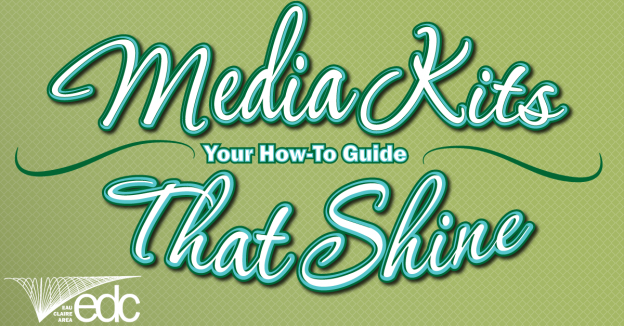You have great news to share – so you wrote up a press release that was stellar (if you haven’t already – check out our previous post about how to write the press release that will get your company in the limelight!). Now you have interest in your story. People are reaching out to you for even more information… and you have two options.
- respond to each request singularly, typing out the same information every time until your brain goes numb and you can’t understand why the contact doesn’t just go on your website to locate the information (seriously – the phone number is in the footer on every page!)
- send out your media kit that has all the important information laid out in a clear and clean way, enabling the contact to find the information they need quickly and allowing you to spend that time getting additional work done – or enjoy another cup of coffee
If you have the time and patience to go with number one … chances are good that you have someone else responding to your emails.
For everyone else, having a media (or ‘press’) kit is a huge time saver for you, quickens the process for the contact, and will help make sure your message is constant across multiple media channels.
What Goes in a Media Kit?
While there isn’t any secret formula of what you need in your kit, there are some basic suggestions that most organizations will find useful.
Introduction
Who are you? What do you do, and why are you doing it? Chances are good that you included a sentence or two in your press release about your organization; this is where you can expand on that.
Mission, Vision, and Values statement(s)
This could be included in your introduction – but it may make sense to highlight these separately.
Testimonials
Everyone has that friend that can’t stop talking about how great they are. Don’t let your media kit be that friend (it is just as annoying). Instead, let others say why you are the greatest. Give voice to your customers and let them share their thoughts in their own words!
Frequently Asked Questions
We all have them, the questions that you get asked all the time. How do I apply? What are the restrictions? Do I have to pay?
Take the time to address all these questions here and you will save a lot of time for yourself, as well as the reporters/writers who want to cover your story.
Notable Clients
Who has used your services or products recently? Are there any big names on that list that may lend your company more credibility?
Services
List out what it is that your organization does. Explain what you do, who it affects, and why you do it. If just listing your services doesn’t make what you do crystal clear – elaborate in a concise way.
Packages & Rates
If your organization sells services or products, include that here. If there is too much to fit on one page, consider highlighting only your best sellers.
Contact Information
There is a decent chance that there will still be a few questions – albeit they should be more advance than “what is it that you do again?” Make sure the contact information is clearly listed – best thing to do would be to have the phone and/or email located in the footer on each page so individuals don’t have to hunt for it.
Refine Your Media/Press Kit
- include photos when you respond
- allow your press kit to have personality
- keep it current
- be consistent with your branding
- check spelling, then check it again
- If your product or company has already been in the news, you can include a few samples of previous news stories as well
What else could you include in your media kit? Take Ken Pearson, Business Development Specialist at Western Dairyland Women’s Business Center –
“If it’s newsworthy to you, it will be newsworthy to your target market as well… [this] is a great way to celebrate your accomplishments—grand opening, anniversary, new hire—and get recognized by your community without paying a single penny!
Get Inspired
All Animal Magazine, published by the Humane Society of the United States does a great job using color to identify the different areas of their media kit. Testimonials on each page gives the readers a great feel of the magazine and what it means to the customer base – and allows them to focus more on the data in the body of the kit. Also – who doesn’t love to look at pictures of cute animals?

